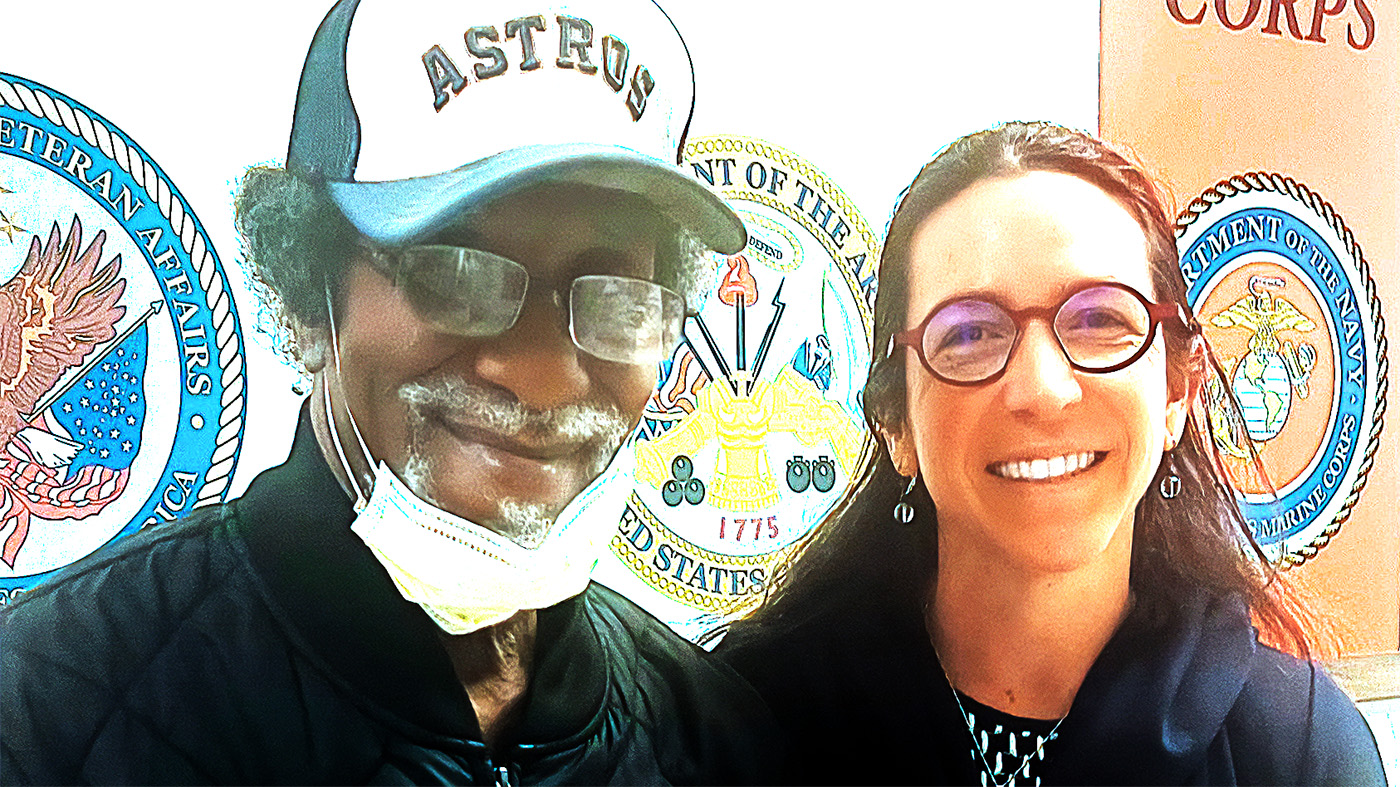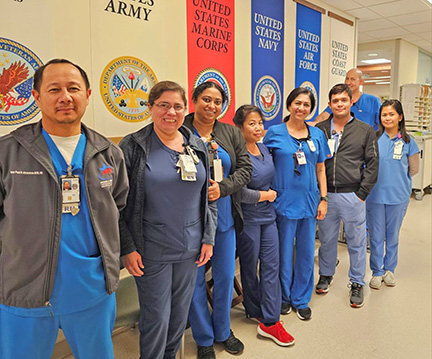An Army Veteran from Houston received a dose of optimism when he came in for a groundbreaking new gene therapy treatment at Michael E. DeBakey VA. Sammie Robertson is the first VA patient in the country to receive a dose of Adstiladrin, the first and only FDA-approved gene therapy to help fight non-muscle-invasive bladder cancer.
According to Dr. Jennifer Taylor, urologic oncologist at Houston VA and an associate professor of urology at Baylor College of Medicine, Adstiladrin is a targeted treatment that works with the body’s immune cells and delivers a gene that encodes an interferon protein to a patient’s bladder so it can fight cancer.
“This new treatment is giving me a chance to get rid of this cancer once and for all,” said Robertson, who served two tours of duty in Korea during his 10 years of Army service. “I have faith in the doctors here at Houston VA, and when they told me I might be a candidate to get this medicine, I said, ‘Let’s go for it.’”
Side effects are generally minimal
The therapy is delivered directly to the bladder via a catheter, and a patient will receive one treatment every three months if monitoring shows it is working. Side effects of the new treatment are generally minimal, Taylor added.
It was originally developed over many years by scientists and urologic specialists treating bladder cancer and, upon FDA approval in late 2022, the VA National Oncology program worked with the manufacturer and the VA National Pharmacy system to ensure early access to Veterans nationwide.
“We are thrilled to offer Veterans this new treatment as an alternative to having their bladder removed,” Taylor said. “Veterans who are candidates for this gene therapy have recurrent non-invasive bladder cancer, which is resistant to first line standard treatment. This new treatment gives them a way to continue to fight bladder cancer without having a major life-changing surgery.”
Bladder cancer rates among Veterans may be higher than non-Veterans
According to the Bladder Cancer Advocacy Network, bladder cancer is four times more common among males than females and is the sixth most common cancer in the U.S. Likely due to a high prevalence of smoking as well as potentially being exposed to a variety of environmental factors while in the military, bladder cancer rates among Veterans may be higher than non-Veterans. Taylor cites clinical research and a commitment to equipping Veterans with the latest and greatest treatments as keys to success in fighting bladder cancer.
Taylor is pictured above with Robertson.
“Houston VA is committed to clinical research into bladder cancer, and we were eager to bring this new treatment to our Veterans as soon as possible,” said Dr. Mark Kobelja, chief of staff at Houston VA. “Our Veteran patients show incredible determination and heart when battling this disease, and we are proud to equip them with this new tool to help.”
As an avid reader of religious books, Robertson said he relies on his faith and his “attitude of gratitude” as critical parts of his healing journey. “I take care of my mother and I want to continue to be there for her. I am so grateful to these doctors here at VA. I know they want the best for me. My goal is to be me and cancer-free.”
Topics in this story
More Stories
Study underscores important role COVID vaccination can have in protecting Veterans from infection and reducing long-term health consequences
Columbia VA’s robotic surgery teams completed their 800th robotic surgery and are on schedule to hit 1,000 by the end of the year.
In a decentralized clinical trial, Veterans can participate from their own homes or local VA instead of having to travel to a research site.








Also as a veteran, I have been battling bladder cancer for more than five (5) years. Albeit, I experience cancer through tumors that seem to develop over time. In fact, in 2023, I had two tumors removed that came at an interval of about four (4) months apart. I was scheduled for a third tumor to removed last December; but as well, fighting depression, I decided: ‘screw-it.’ And so, today, my VA urologist suggests this tumor must be removed, and I should follow-up with chemotherapy. I ask, What’s the sense?
Will this new cancer fighting medicine work as well per my circumstances?
I am a vet. 85 years old & I go to Pea about every two hr. & I still don’t know if I emptied my bladder. does this have any effect on your study Randald Bartlett
this web site does not work
2022 and now 2023 you treat a Vet why not sooner????
Keep the Faith brother and may the Lord continue to be your strength +